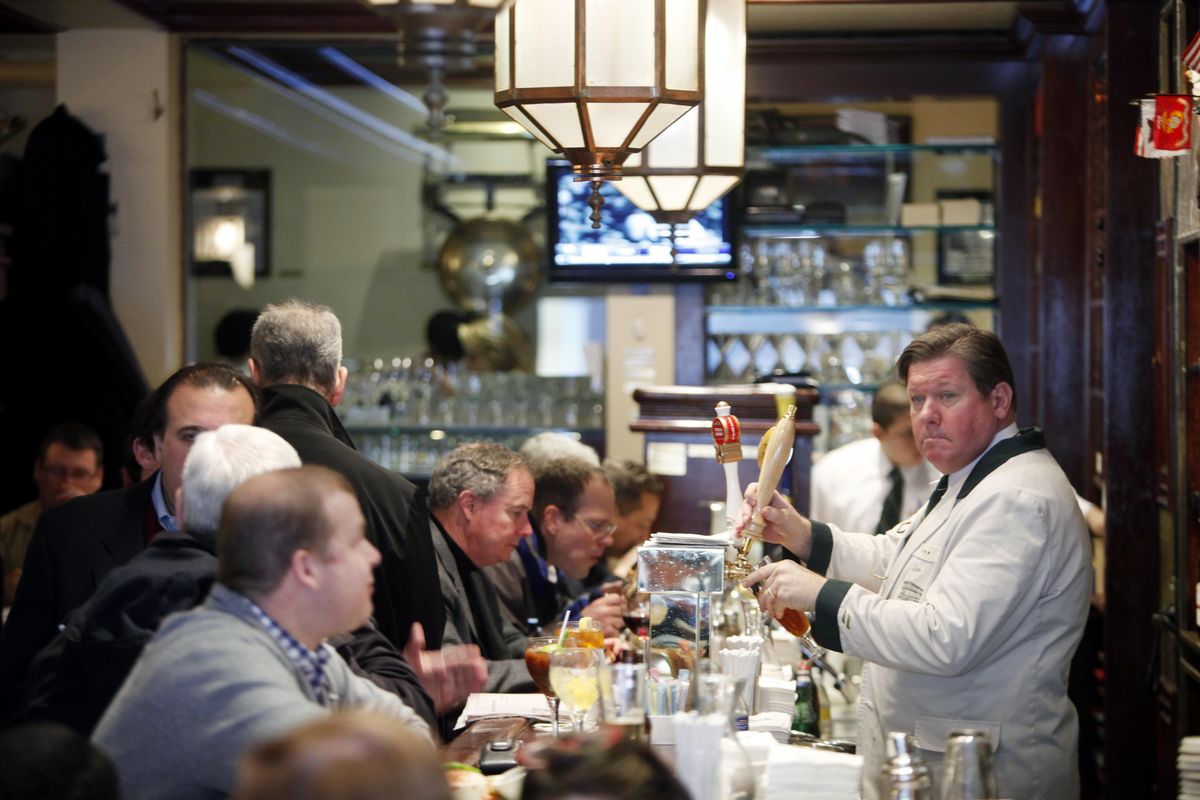As Wall Street defers bonuses, others suffer from lost income
Those who cater to wealthy won’t see trickle-down effect

NEW YORK — Big bonuses are back on Wall Street, but that doesn’t mean everybody’s driving a new Ferrari. This year, companies are giving out more of the rewards in stock that can’t be redeemed for years, limiting the economic benefits for businesses that cater to the Masters of the Universe.
Whether they sell $5 million condos or $50 steaks, those businesses are bracing for a winter without the typical bonus rush.
“They are taking away the pot of cash, and without that cash, there can’t be a trickle-down effect,” said Alan Stillman, owner of the New York steak house Smith & Wollensky. “Everyone feels it. The taxi drivers, doormen, waiters, everyone.”
With banks earning billions again, they are set to pay near-record bonuses for 2009. Just Thursday, Goldman Sachs said it rewarded employees with $16.2 billion in salary and bonuses for the year, up almost 50 percent from the year before.
But those same firms are bowing to political and public pressure and paying more of the bonuses in stock that cannot be redeemed right away. Goldman announced in December that its top 30 executives would get only stock that can’t be sold for five years.
Typically, Wall Street bonuses are paid in a 50-50 split between cash and stock, in the form of restricted shares or stock options. Because they can’t be cashed in for a set time, the ultimate payout depends on the fluctuations in the company’s stock price.
This year, the equation is expected to be tilted, with 75 percent coming in stock, said Alan Johnson, who works with Wall Street companies as they determine how much to pay their employees.
With less cash to spend, bankers will be less inclined to splurge at the high-end stores of Madison Avenue or go for $20,000 stainless-steel stoves and refrigerators or vacation at five-star resorts in far-flung locations.
And it won’t be a typical year at places like Ferrari Maserati of Central New Jersey, where Wall Street types troop in with their eyes on the prize: a $125,000 Maserati or, if it was a particularly good year, a Ferrari costing $200,000 or more.
“After the holidays, after they’ve taken care of everyone else, they are ready to take care of themselves. They’ve earned a new toy,” said general sales manager Joe Collado.
But nowadays “if they don’t have the same kind of cash flow, they can’t spend as much.”
Tax collectors in New York stand to lose tens of millions of dollars because deferred stock can’t be immediately taxed. That will make it more difficult to plug the state’s $7 billion budget hole.
“There may be a lot of good sense in why this change in bonuses is being done,” said Robert Whalen, spokesman for the New York state comptroller. “But it is a double-edge sword when what Wall Street earns is an important driver of the economy.”
The actual tax losses due because of the shift in bonuses isn’t yet known. New York state lost nearly $1 billion in personal income taxes because of a big decline in overall bonuses for 2008 in the financial industry.
The state could get some of the money back when Wall Street employees’ stock compensation vests, or when it becomes eligible for sale. Of course, if the stock price falls in that time, that means less money goes to Wall Street workers — and to the state in taxes.
Brokers at the luxury real estate company Brown Harris Stevens watched the stock market rise last fall with a sense of giddiness. They’ve been around long enough to know that when Wall Street makes money, they make money.
The change in how bonuses are paid has been a bit of a buzz-kill.
“We are still at a pretty steady simmer, not a boil,” said James M. Gricar, executive vice president and director of sales at the real estate firm.